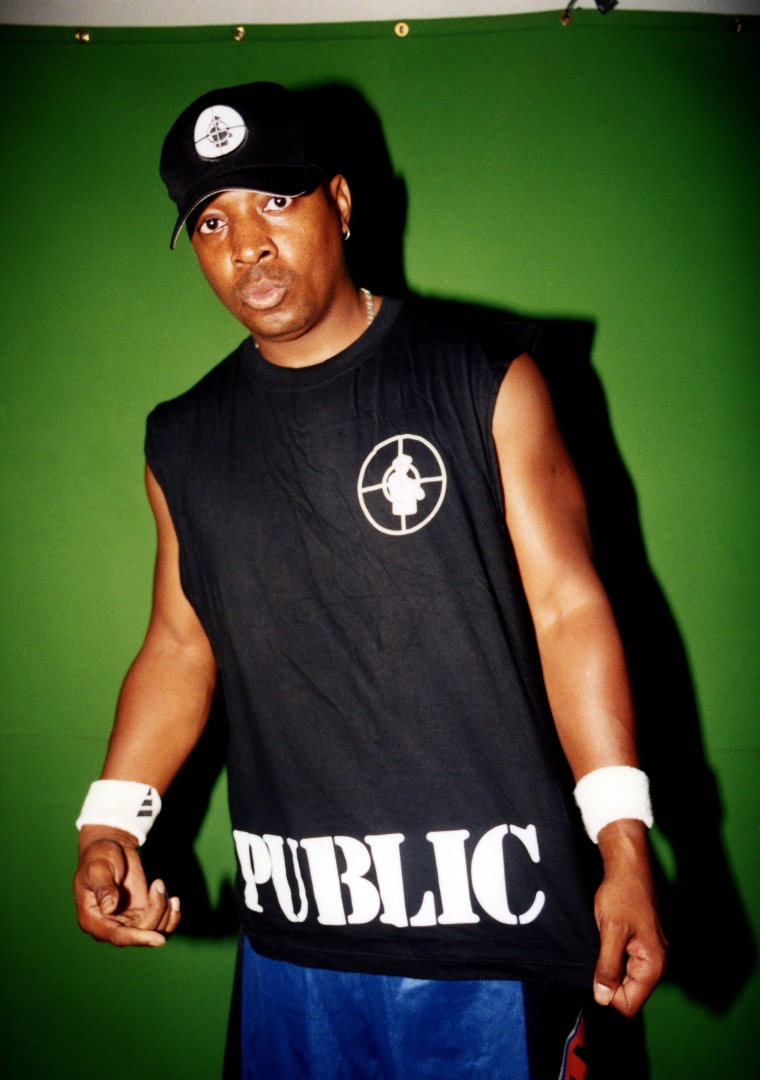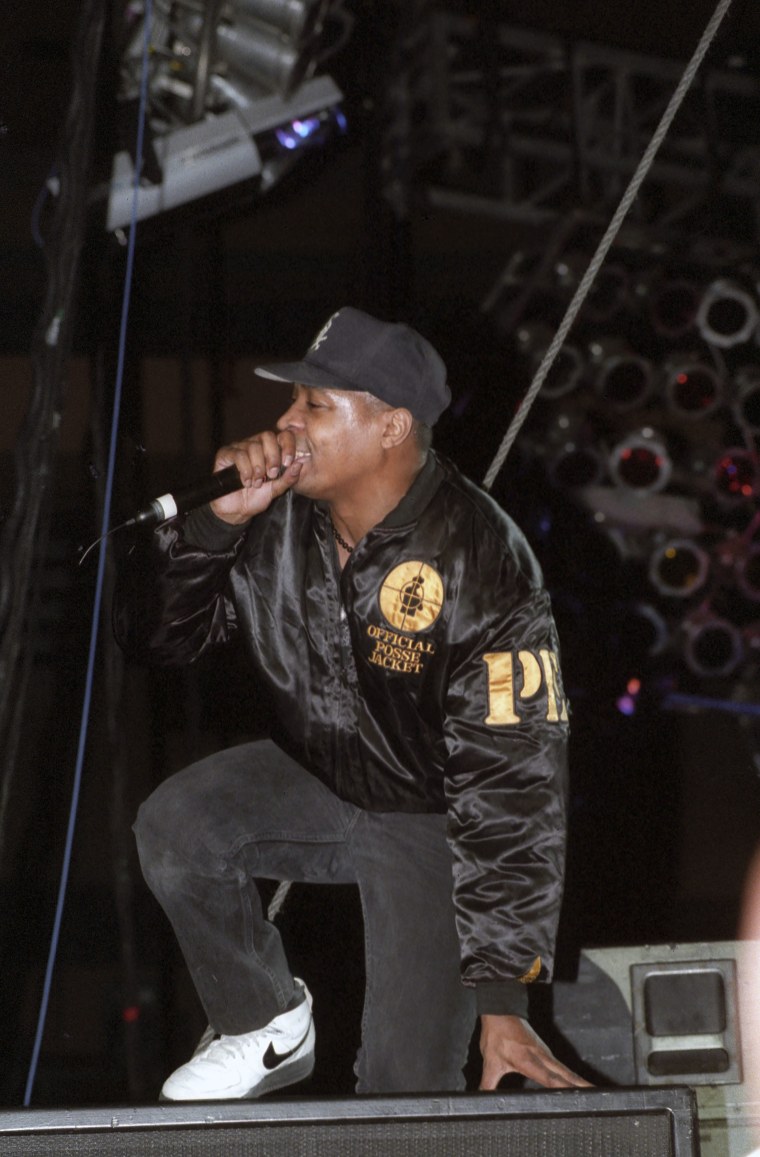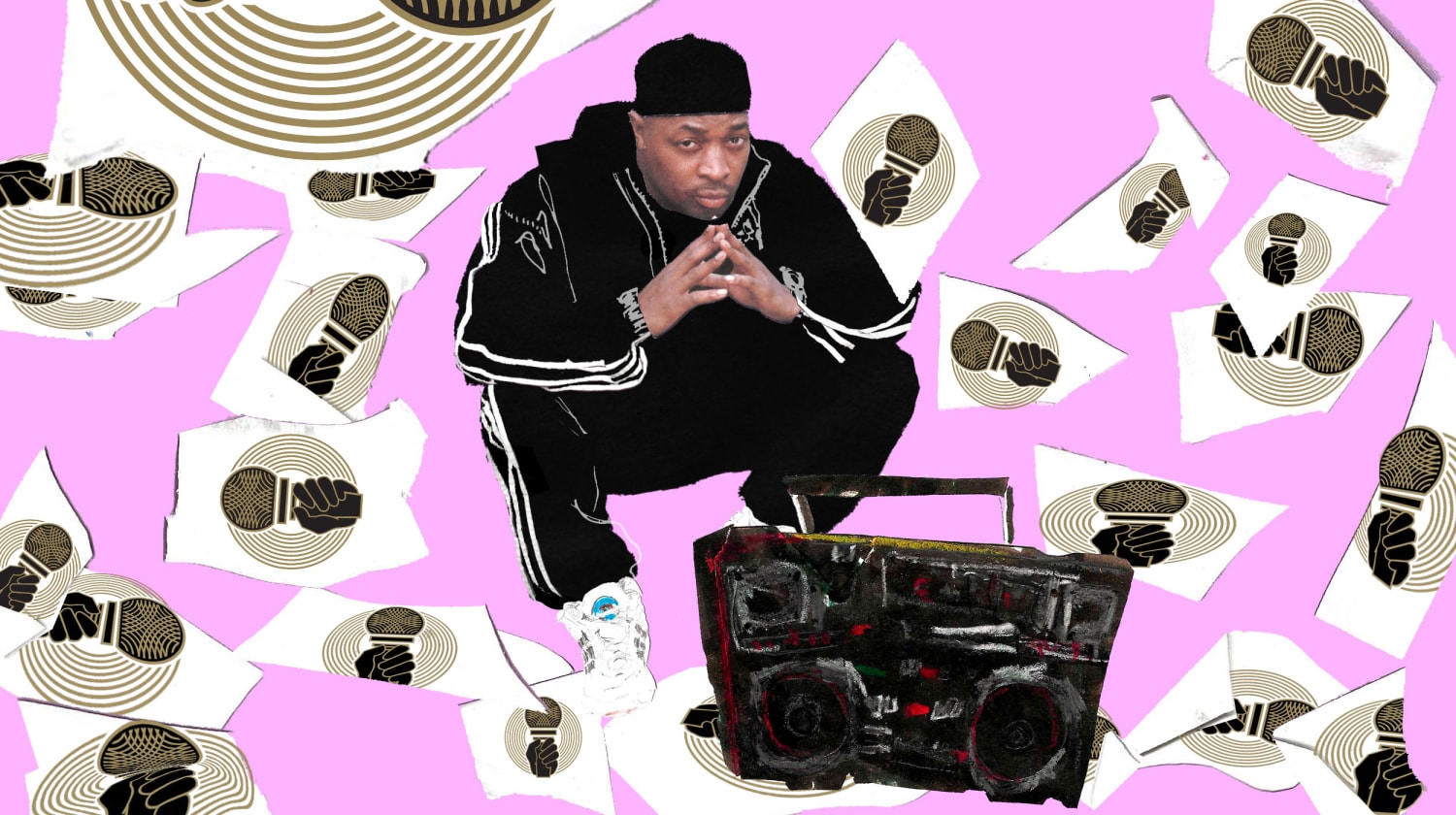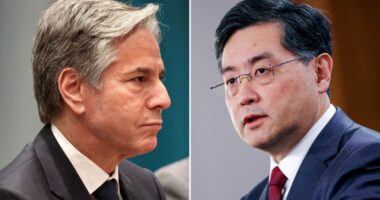When hip-hop emanated from the Bronx 50 years ago, initiating a genre of music that would influence Black culture in myriad ways, Chuck D was 13 and not at all interested in becoming one of the rap game’s most important voices.
“Who the hell wants to be a star?” was his mindset back then, he said.
But the pull and fascination of hip-hop grabbed a hold of him as it has countless artists and fans alike, and he put aside his ambition of being a journalist. In 1985, he helped form and lead Public Enemy, the iconic rap group that released 15 studio albums, two live ones and many more compilations and other records, almost every one of them anchored in Black empowerment messages on civil rights, social justice and historical references.

With 38 years in the business, Chuck D, 62, has experienced and seen more than most. In his recently released book, “STEWdio: The Naphic Grovel ARTrilogy of Chuck D,” he matches his graphic designs skills with piercing critiques on social issues in American life from 2020 to 2022 that he jotted down in his journal while on the road.
At the same time, he is the president and co-founder of the Hip Hop Alliance, an organization that fights for artists’ fair royalties, retirement savings and other rights to assure financial stability.
Countless artists have found themselves in financial straits because they signed ill-advised deals, had poor representation or mismanaged the money they did earn. The Hip Hop Alliance is a labor force organization with lawyers and industry veterans that fights to protect artists from being taken advantage of by opportunistic record labels.
“This is artists protecting artists,” Chuck D said.
In a wide-ranging conversation with NBC News, Chuck D raps and reflects on the power and influence of hip-hop artists, the origin of the genre, why Public Enemy took on social issues, the importance of creating an artists union and the future of the genre with artificial intelligence, among other issues.
NBC News: What do you remember about 50 years ago, when hip-hop went from this New York- based phenomenon of the streets to records in mainstream America?
Chuck D: I heard rumors all throughout 1979 that there was going to be a rap record. And I was like, “How in the hell? No way.’ It was inconceivable that it would be such a thing because, to me, rap was something that took place over a two- or three-hour period. So, I’m thinking, ‘How are you gonna put rap down a record?’ And when the Sugar Hill Gang came out with Rapper’s Delight, I was like, ‘Oh, that’s how? Wow.’

NBC News: What is it about hip-hop that has made it such a global sensation?
Chuck D: When I was in the 11th grade, I was just blown away by the technology of it all. Why does a guy need two turntables? Is one for backup in case the other one breaks down? (Laughs.) I didn’t understand. But I later learned, and it was so cool, so creative.
Hip-hop happened to be the term that came around 1973. It was so technologically futuristic. And that intrigued me — and everyone. The next stage was when it became recorded music. Everyone could hear what we lived and loved. And the third stage was Run DMC’s “Raising Hell” album that came out in 1986. This was something that went head-to-head with anything that rock music produced, and they played the same arenas, had the same volume and audacity. They were kicking the noise.
NBC News: And that set the stage for all that came after?
Chuck D: Yes, because rap is applicable to rock, country, folk, reggae, which comes up out of soul. And with it came the style, a lifestyle, the messages, the impact that penetrated all walks of life. A culture.
NBC News: The formation of Public Enemy seemed to be about pushing a narrative of Blackness as much as the music. Why?
Chuck D: It behooves you to study what you love. We love Black music and we studied it. It was like we were historians. We really relished the music. We made “Fight The Power,” but the Isley Brothers had made it first, in 1975, and it was very influential to me. So, by the time we made it for the Spike Lee soundtrack to “Do the Right Thing,” we were making a statement of what we saw, what we listened to, what we absorbed as a community.
We were at a certain age, but we weren’t trying to appeal to kids. We were doing what grown folks do. We weren’t going to bow and appeal to the kid dollar in order for us to make a living. When we made our music we felt like that was the way it should be. I learned from my dad: You say your thing and you stand by it. And that resonated despite the marketing teams wanting to cower to the kid dollar.
Source: | This article originally belongs to Nbcnews.com









